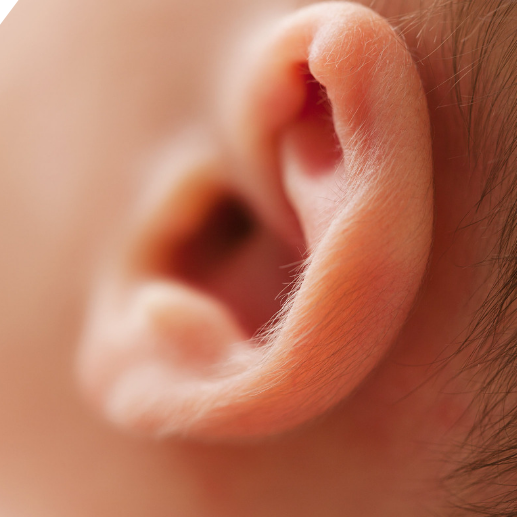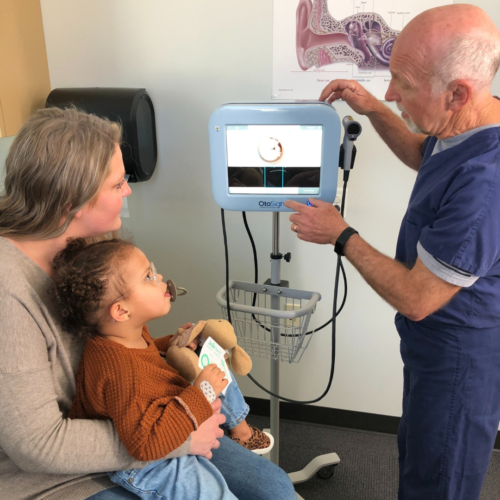Phone
866-411-EARS
Address
PhotoniCare Inc.
2800 Meridian Parkway, Suite 175
Durham, NC 27713

Hearing loss may occur due to injury, aging, noise exposure, and/or heredity. But can ear infections also contribute to hearing loss? That is not a simple question to answer!
Most middle ear infections are caused by either bacteria or viruses. A common cold, the flu, or allergy symptoms that cause congestion and swelling of the nasal passages, throat, and eustachian tubes can sometimes lead to an infection. Anything that makes the nose stuffy has a tendency to cause swelling and blockage of the eustachian tubes. Swelling from colds or allergies can keep the eustachian tubes from opening and this leads to pressure changes and the accumulation of fluid in the middle ear. This pressure and fluid will cause pain and sometimes persistent fluid can lead to an infection, or even temporary hearing loss.
When hearing loss occurs as the result of an ear infection, it is referred to as conductive hearing loss. It happens when an obstruction appears in the middle ear, not allowing sounds to stimulate the auditory nerve. Conductive hearing loss affects the outer or middle ear, rather than the auditory nerve. Since the auditory nerve is unaffected, this hearing loss is often temporary and hearing returns after treatment is completed. Treatment may include antibiotics or even tubes within the ear if the patient has a history of ear infections.
While conductive hearing loss seems fairly mild and temporary, there are other situations caused by ear infections that can be more serious in nature and have a long-term impact on a person’s hearing. When someone develops an ear infection, there is typically a buildup of fluid in the middle ear. If that fluid continues to build up, the pressure can potentially rupture the eardrum.
Another possible outcome of an ear infection is Tympanosclerosis. Tympanosclerosis, the thickening or scarring of the tympanic membrane, usually occurs when the patient has a history of recurring ear infections. This will affect the mobility of the eardrum and will negatively impact hearing. While it is possible to have hearing return to normal after treatment, there is still a risk of permanent hearing issues. When this happens, hearing aids may be the only option.
While temporary hearing loss during an ear infection is not all that uncommon, it can still be unsettling. It is also important to pay close attention to infants and toddlers who may suffer from chronic ear infections since this is the age where speech and language hits a crucial learning point. Any repeated or temporary hearing loss may have a long-term negative impact.
In summary, the question of whether ear infections have the ability to cause hearing loss is a complicated one to answer. Yes, almost all cases have the potential to suffer from temporary hearing loss; however, rarely, if ever, is it a permanent change. More often than not, the hearing will gradually return as the infection runs its course.

The COVID-19 pandemic has created numerous challenges for parents. Navigating… Read More

PhotoniCare sits down with Dr. Michael Novak, an Ear, Nose… Read More

This week on the #EnginEarGuys blog we talk about otolaryngology… Read More